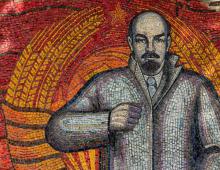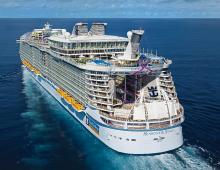What you need to know about Croatia. Croatia: where is the best place to relax and what to see? Music in the open air
Croatia is an excellent ecological situation, the cleanest sea, mild climate, the opportunity to practice all kinds of sports, and, in addition, enjoy sightseeing, not only beautiful, but also of key importance in European history. Geographic location determines the prominent role of Croatia in European history, which is known to be very turbulent. Thanks to this, the country is rich in various historical and architectural sights of different styles and eras. On the other hand, Croatia is a quiet, calm - almost homely - a country that is washed by the cleanest sea and immersed in lush greenery.
Cities of Croatia
Croatian cities are incredibly good. Big and small, ancient and just old, they are all hospitable and friendly. Pula, Dubrovnik, Zagreb, Split, Opatija, Porec are the most famous of them. Dubrovnik, Umag, Brela, Porec, Split, Trogir are included in the list world heritage UNESCO. Rich story almost everyone, and almost everyone is ready to show off their sights: majestic cathedrals, polygonal squares, narrow crooked streets, ancient fortresses. Each historical period has made its own features in the appearance of Croatian cities. Not all remarkable buildings have survived to this day, but all cities have retained their original appearance.
Holidays in Croatia
Islands of Croatia
A feature of Croatia is the large - more than a thousand - number of islands off its coastline. These islands are surprisingly diverse. Among them there are very small ones, in fact, just a rock or a reef washed by sea water, and there are huge ones, for example, Krk and Cres, on which cities and villages are located. These islands are the goal of many travelers. They differ in excellent ecology, developed infrastructure and quiet life. Staying on these islands is filled with relaxation, contemplation and the delights of island life. Because of the sea winds, there is not much heat here, even at the peak of the season. Thanks to the islands, Croatia has almost the longest coastline in Europe, more than 5500 km.
Croatian beaches
The beaches of Croatia are diverse both in size and quality. But it should be remembered that in this country there are practically no wide sandy beaches, they are mostly rocky. The pattern is as follows: in the northern part of the coast, the beaches are rocky, with small pebble areas, and in the middle part and in the south - small pebble with small sandy areas. At first glance, this does not bode well beach holiday, but the cozy bays of the Croatian coast are so picturesque that it fully compensates for the lack of wide sandy beaches. The beaches of Croatia attract not only with their picturesqueness. Almost all of them are equipped with the necessary infrastructure, all have the opportunity to go in for sports or beach activities. Classic beach activities such as catamarans, parasailing, banana boat rides, and children's playgrounds abound here. Camping sites are often equipped near the beaches: many people choose car trips around the country. As a rule, near the beaches you can find many cafes, bars and restaurants for every taste and budget. I must say that you can have a wallet here and not very weighty, the prices in the country are such that the rest is not burdensome in material terms. An important aspect of any travel is gastronomic. And in this regard, Croatia is an extremely attractive country: the basis of the Croatian national cuisine are almost dietary dishes: seafood, vegetables and a variety of wines.
Previous photo 1/ 1 Next photo

Holidays in one of the cleanest and most beautiful countries in the world
In recent years, more and more popular solo travel. Croatia suits them in the best possible way: still visa-free (in holiday season) for our fellow citizens, having an extensive network of hotels and restaurants, speaking a related Russian language, Croatia is an ideal country for independent tourism. To this should be added the fact that the distances between Croatian cities and villages are small, and they are overcome in a matter of hours by public transport.
Croatian international airports are located in Zagreb, Dubrovnik, Pula, Brac, Zadar, Losin, Osijek, Rijeka, Split. In Croatian, airport means “stared bow”. Regular flights to the sighted bow of Zagreb are operated from Moscow by Aeroflot and Croatian Airlines. During the tourist season, many charter flights are added to them.
- Croats are distinguished by their good-natured character and extreme cleanliness in everyday life (the latter makes them related to the inhabitants Western Europe). Openly showing negative emotions (arguing, swearing), just like leaving cigarette butts or littering on the streets, is considered unworthy behavior here and is universally condemned. However, at the same time, there are traditionally a number of unpleasant qualities in the Croatian character (first of all, lack of punctuality and egocentrism), which should be treated with maximum patience and understanding.
- In summer, the popular beaches of Croatia are filled with people, so best time to rest on them - the beginning of autumn.
- The language in Croatia is very close to Russian, but a few everyday words or phrases in Croatian, inserted into the conversation in time, will help to establish friendly communication with the locals. A short Russian-Croatian will help you with this.
- It is forbidden to “vote” on the roads of Croatia. However, local drivers (especially in the interior of the country) willingly pick up travelers if they look like foreigners.
- It is better to buy swimming accessories (special slippers) to protect against sea urchins and sharp stones in advance.
- Red caviar is not sold in Croatia, so if you want to please your Croatian friends with an original delicacy from Russia, take a jar or two with you.
Accommodation in Croatia
- Although you can find many hotels in Croatia, in terms of price-quality ratio, many vacationers choose accommodation in private villas or in rented apartments. The price of rental housing in Croatia directly depends on the season. At its peak - in July-August, prices tend to rise (apartments - from 50-130 €), and at the end of the season, for example in September, the cost of renting housing gradually decreases (apartments - from 25 €).
 |
- You can rent accommodation in Croatia in advance - on the Internet or immediately upon arrival in the country. At major railway stations in the country during the season, you can always meet people with Sobe (“room”) signs, signaling the availability of free housing. Similar inscriptions are also found at "hotel" houses along local roads.
How to save money in Croatia
- The price level in Croatia corresponds to what can be found in the countries of Western and Central Europe. However, prices in different cities and resorts in Croatia can vary significantly. So, Dubrovnik, Zagreb and the Makarska Riviera are considered expensive places to stay, and hotels in the resorts of Istria (except Roven) are famous for their affordable prices.
- Dine in Croatian restaurants big companies. A dish of large portions (n / a cold cuts "Meshano Meso" or fish "Fish Plata") are much cheaper per person, as well as whole bottles of wine.
- Buying bus tickets directly from the driver's cabin in Croatia is cheaper than at the bus station ticket office.
Vacation planning
- Despite having many beautiful beaches, Croatia is known as a country for lovers of active travel. A lot of historical and natural attractions have guests of the country to sightseeing trips. However, in order not to spend your vacation on the road while “chasing two hares”, you need to plan your excursion program in advance by choosing 3-4 main attractions located near your vacation spot in Croatia.
- If you plan to travel a lot around the country, it does not make sense to take a room in an all-inclusive hotel, because. most lunches and dinners can go unused.
Holidays with children in Croatia
- If you are going to spend your holidays in Croatia with small children, then one of the defining moments for its successful course will be the choice beach resort. The fact is that the beaches of Croatia are covered mainly with large pebbles or generally represent a concrete embankment. In order for the baby not to experience discomfort when entering the water, you need to choose beaches with a gentle slope, covered with sand or small pebbles.
Being in Croatia and not visiting Dubrovnik is just a crime. The pearl of the Adriatic, a UNESCO site - this city with fortified walls and red tiled roofs is simply made for walking. Especially romantic moments here can be caught at sunset and when climbing the funicular.
Listen to the sea organ and say "Hail to the Sun"
The Croatian city of Zadar is famous for two creations of the architect Nikola Bašić. The Hail to the Sun facility is a huge disc of glass tiles with built-in photovoltaic cells that turn it into a colorful street dance floor at night. And the music is provided, the design of which is hidden in the steps leading to the water: 35 pipes of various lengths, diameters and inclinations are controlled by waves and only by them.
Get treated on a coniferous beach

The shores of the Adriatic are famous for their coniferous trees growing right at the sea's edge. The aromas here are amazing - just right to heal and harden those who are often sick.
Dance the night away in "Croatian Ibiza"

For the right to be called the party capital of Croatia, two islands are fighting at once - and. Whichever of them the lovers of dancing choose, they will not be disappointed: both there and there they will find great amount clubs, bars and restaurants open all night.
Look into the caves of the nymph Calypso

be a nudist

Croatia is the first European country to allow the opening of nudist centers on its territory. It happened already in 1953, and since then anyone can sunbathe and look around at one of the many nudist beaches: Koversad, Monsen, in Pula and on the island of Hvar.
live at the lighthouse

If staying at a hotel is boring, in Croatia you can easily live for several days in a real lighthouse. In addition, there are eleven such "apartments" on the Adriatic coast: St. Ivan, St. Petar, Savudrija, Struga, Palagruzha, Plochitsa, Porer, Prishnyak, Veli Rat, Susac and Khost. The cost of renting such living space varies depending on the season and averages 500-800 € for seven days.
Eat truffles and oysters

From a gastronomic point of view, the main trump cards of Croatia are fresh truffles and oysters. The first ones are worth looking for in the north of the country - in a town called Motovun (in October they even hold a festival of white and black truffles), and the second ones - in the south, in the town.
Buy yourself a tie

Few people know, but it is Croatia that is considered the birthplace of ties. And all thanks to local soldiers, whose uniforms included neckerchiefs that were tied in a knot: unlike the then common lace collars, which had to be washed, starched and wrung out in a special way, these ties did not require such careful care and did not restrict freedom of movement . Now, in any Croatian city, you can easily find many shops offering a large selection of ties - from classic to the most extravagant.
Photo: thinkstockphotos.com, flickr.com
Nuances
join us




